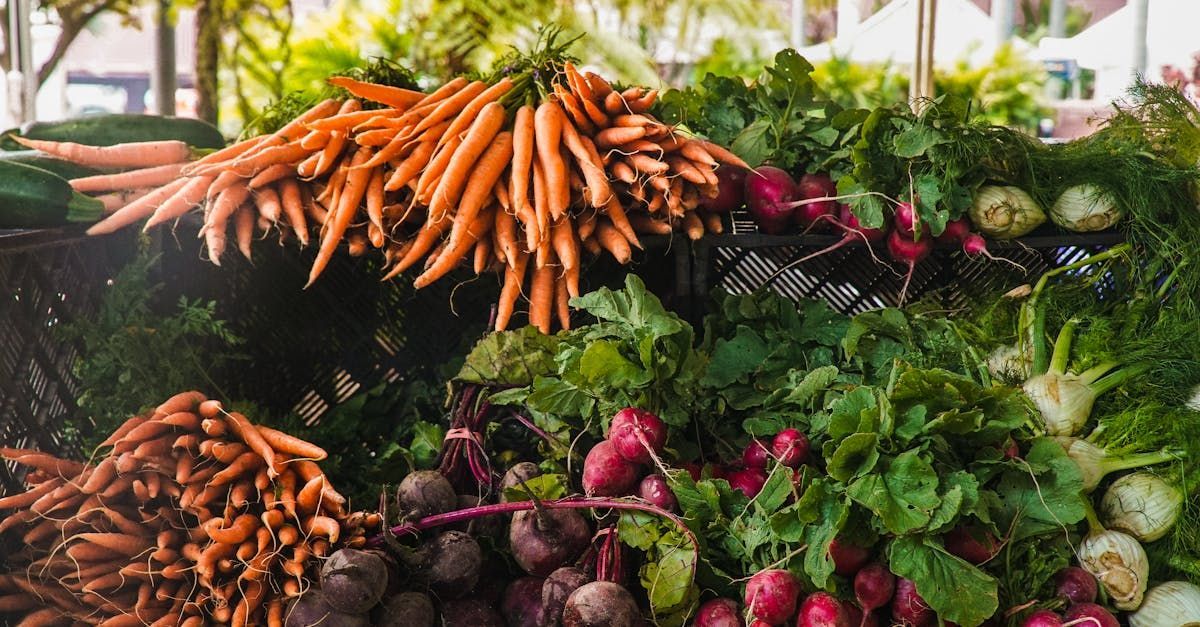Nutrition and Diet for Optimal Gut Health
Evangeline Lindorf
Let Medicine Be Your Food - and eat plants, lots of them.

Welcome to the gut health series! This week, I'll discuss with you how nutrition and diet play a crucial role in maintaining a healthy gut. Your gut is home to trillions of bacteria that help with digestion, nutrient absorption, and immune system function. Your gut creates neurotransmitters and affects your mood too. You should, actually, trust what your gut is telling you!
The Gut Microbiome: Your Digestive Allies
Your gut microbiome consists of a vast community of microorganisms that live in your digestive tract. These bacteria, viruses, and fungi play a key role in breaking down food, producing vitamins, and protecting against harmful pathogens. A balanced diet can help maintain a healthy and diverse gut microbiome, which is essential for overall health. The more good bugs you have, and the more types of good bugs you have, the better you will feel.
Fiber: The Gut's Best Friend
Fiber is one of the most important nutrients for gut health. It acts as food for the beneficial bacteria in your gut, helping them thrive and produce short-chain fatty acids (SCFAs) that support gut lining integrity and reduce inflammation. There are two types of fiber: soluble and insoluble.
Soluble Fiber:
Found in foods like oats, beans, fruits, and vegetables, soluble fiber dissolves in water to form a gel-like substance. It helps regulate blood sugar levels and lowers cholesterol. (We have to be cautious with certain foods that contain lectins though, like oats and beans, they require special cooking methods, because they can tear up that delicate one celled intestinal lining. More on this in a future blog post).
Insoluble Fiber: Found in whole grains, nuts, seeds, and vegetables, insoluble fiber adds bulk to stool and helps it pass more easily through the digestive tract, preventing constipation. (Please refer to Dr. Gundry's books on lectins to learn more).
Fermented Foods: Boosting Probiotics
Fermented foods are rich in probiotics, which are live bacteria that can confer health benefits when consumed. These foods help replenish and maintain the balance of good bacteria in your gut. Some popular fermented foods include:
Yogurt: Contains beneficial bacteria like Lactobacillus and Bifidobacterium (low Bifidobacterium puts you at higher risk for developing COVID-19).
Kefir: A fermented milk drink that is a potent source of probiotics.
Sauerkraut and Kimchi:
Fermented cabbage that provides a variety of beneficial bacteria.
Kombucha: A fermented tea rich in probiotics and antioxidants (I do not advise making your own).
Prebiotics: Feeding Your Gut Bacteria
Prebiotics are non-digestible fibers that feed the beneficial bacteria in your gut. Including prebiotic-rich foods in your diet can enhance the growth and activity of good bacteria. Some excellent sources of prebiotics are:
Garlic and Onions: Contain inulin, a type of prebiotic fiber.
Bananas:
Especially when slightly green, are rich in resistant starch.
Asparagus and Artichokes: High in inulin and other prebiotics.
Whole Grains: Such as barley, oats, and whole wheat. Avoid these, obviously, if you are gluten free. I recommend for everyone to utilize ancient grains such as Einkorn or Khorasan wheat, both are non hybridized and are more easily digested and better for the body. The brand Jovial Foods makes excellent healthy whole grain products, that even those who are gluten sensitive (but not wheat allergic or Celiac's) can usually tolerate.
Hydration: The Unsung Hero
Staying hydrated is crucial for maintaining gut health. Water helps dissolve nutrients, aids in digestion, and keeps stool soft, preventing constipation. Aim to drink at least eight glasses of water a day, and more if you're active or live in a hot climate. Avoid tap water whenever possible. Try to drink water that is distilled or has gone through a reverse osmosis process; add back in electrolytes as needed. Drinking from glass is always preferable to drinking out of plastic when possible.
Mindful Eating: Savor Your Meals
How you eat is just as important as what you eat. Eating mindfully can improve digestion and enhance your gut health.
Chew Thoroughly:
Chewing breaks down food into smaller pieces, making it easier for your digestive system to process.
Eat Slowly: Eating slowly allows your body to recognize when you’re full, preventing overeating.
Avoid Distractions: Focus on your meal rather than eating while watching TV, playing on your phone, or working, which can lead to overeating and poor digestion.
Foods to Limit: Protecting Your Gut
Certain foods can disrupt your gut microbiome and negatively impact your digestive health. Try to limit:
Processed Foods:
High in unhealthy fats, sugars, and additives that can harm your gut bacteria. The majority of foods found on American grocery shelves are UHPFs (Ultra High Processed Foods). Regular consumption of these foods leads to terrible gut health later.
Artificial Sweeteners: Some studies suggest they can disrupt the gut microbiome and lead to digestive issues. Additionally, the brain cannot tell the difference between artificial sweeteners and real sugar, so the dopamine effect is the same and weight gain can be a serious issue, whether you are drinking diet coke or full sugar coke.
Alcohol and Caffeine: Excessive consumption can irritate the gut lining and affect digestion.
Conclusion
A healthy gut starts with what you put on your plate--eat lots of plants and lots of colors. Don't eat foods your great grandma would not recognize as a food. By including a variety of fiber-rich, fermented, and prebiotic foods in your diet, staying hydrated, and eating mindfully, you can support your gut microbiome and overall digestive health. Remember, small changes in your diet can make a big difference in how you feel. As I like to say, you can pay at the grocery store now, or the pharmacy later - your choice!
Next week, I'll discuss supplements that can support your gut health. Stay tuned!

Safe Exercise for People with Hypermobility Ehlers-Danlos Syndrome (hEDS) If you’ve been diagnosed with hypermobility Ehlers-Danlos Syndrome (hEDS) , you know that movement can feel tricky. Joints may slip, ache, or feel unstable, and sometimes exercise feels intimidating and overwhelming. However, the right kinds of exercise will help you get stronger, protect your joints, and improve your daily comfort. The goal with hEDS is not to push your body to extremes—it’s to gradually, over time, build gentle strength, stability, and confidence. Why Exercise Matters with hEDS The right types of movement can: Strengthen muscles that support loose joints. Improve balance and body awareness (reducing injury risk). Ease pain and fatigue. Boost mood and energy. Nurse Pro Tip : Think “support” not “stretch.” The goal isn’t more flexibility—you already have plenty—but stability and protection. ✅ Safe & Helpful Exercises When choosing activities, think slow, steady, and supportive. 💧 Water-Based Exercise Swimming, water walking, or gentle aquatic therapy take pressure off your joints while still giving you resistance to build strength. 🧘 Modified Pilates or Yoga Focus on core strength and stability. Skip deep stretches—keep movements small, controlled, and steady. 🏋️ Light Strength Training Resistance bands or light weights help build protective muscle. Stick with lighter loads, higher reps, and slow, intentional movements. 🚶 Walking or Cycling Flat-ground walking and recumbent cycling are gentle, low-impact ways to support cardiovascular health. 🤲 Physical Therapy Exercises A physical therapist who understands hEDS can teach you safe, customized strengthening routines to stabilize your most vulnerable joints. ( Email me @ yourinspiredvitality@gmail.com for personalized recommendations or referrals to Utah PTs familiar with hEDs). ❌ Exercises to Avoid Some activities can increase the risk of injury or worsen symptoms. It’s best to avoid: High-impact sports (running, jumping, contact sports). Heavy weightlifting (places too much strain on joints). Deep stretching or “contortion-like” yoga. Fast-paced HIIT workouts with explosive movements. Gymnastics or flexibility-focused training. Nurse Pro Tip : If the focus of a workout is “how far you can stretch” or “how heavy you can lift,” it’s probably not the right fit for hEDS. 💡 Tips for Moving Safely Listen to your body—stop if something feels wrong. Prioritize stability, not flexibility. Work with professionals who understand hypermobility. Progress slowly—small, consistent steps are safest. ✨ The Bottom Line -- Living with hEDS doesn’t mean avoiding exercise. It means finding the right kind of movement that supports your body instead of stressing it. With gentle, strengthening exercises, you can feel stronger, reduce pain, and enjoy a more active, confident life.

